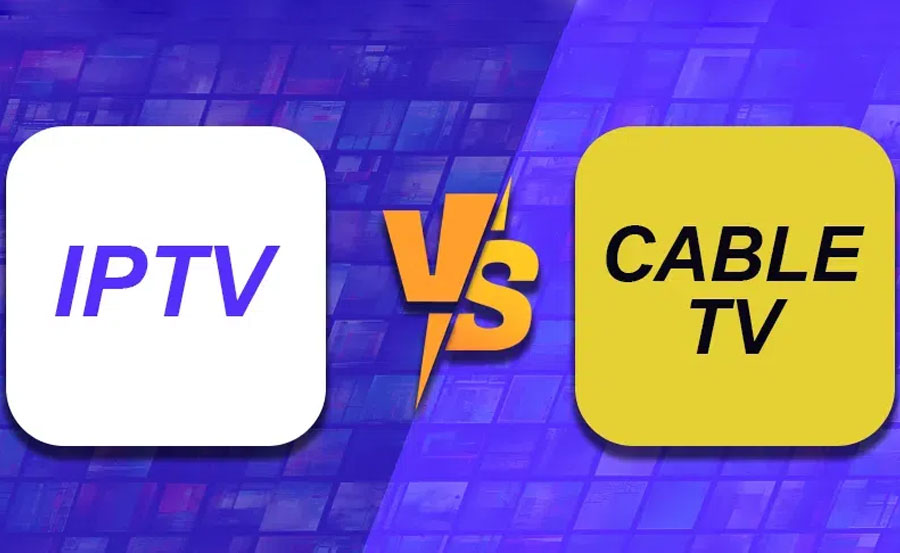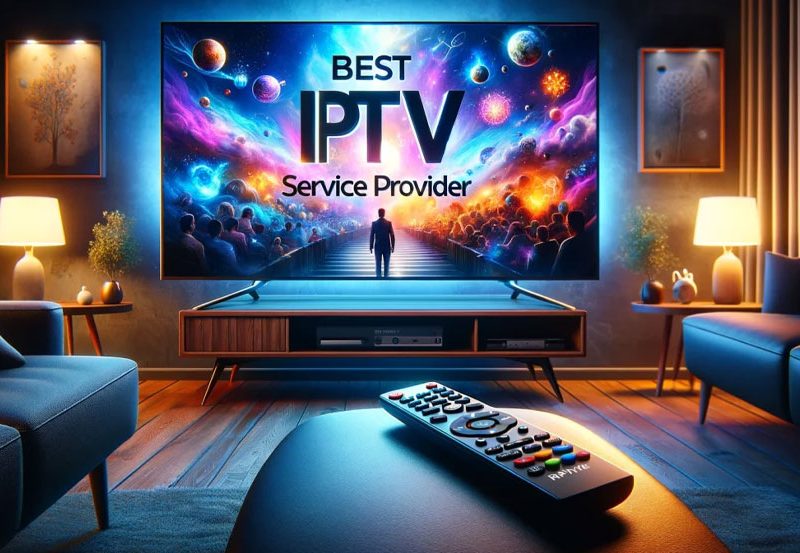Television content delivery has evolved to offer two primary options: IPTV and cable TV. IPTV (Internet Protocol Television) transmits television content via the internet using the same technology that powers online connectivity. Cable TV, in contrast, delivers content through traditional coaxial cables.
Each option presents distinct advantages and disadvantages. IPTV represents a more contemporary approach to content delivery, streaming directly to users’ devices through internet connections. This method allows viewers to access their preferred programming from any location with internet availability, providing flexibility for mobile users.
Cable TV, however, relies on physical cable infrastructure, limiting content access to areas where cables are installed. The choice between IPTV and cable TV depends on individual needs and preferences. Factors such as content availability, internet connectivity, pricing, and desired viewing experience all play roles in determining the most suitable option for consumers.
By understanding the characteristics of each system, viewers can make informed decisions about their television service preferences.
Key Takeaways
- IPTV and Cable TV are two popular options for television entertainment, each with its own set of features and benefits.
- When comparing costs, IPTV generally offers more affordable options compared to traditional Cable TV.
- IPTV provides a wider range of channel selection, including international and niche channels, compared to Cable TV.
- IPTV offers high-quality and reliable streaming, often with the option for 4K resolution, while Cable TV may be subject to signal disruptions and outages.
- IPTV typically offers a larger library of on-demand content, including movies and TV shows, compared to Cable TV.
- There are several top IPTV apps available that enhance the IPTV experience with features like multi-screen viewing and personalized recommendations.
- Ultimately, the choice between IPTV and Cable TV depends on individual preferences and entertainment needs.
Cost Comparison: IPTV vs Cable TV
Affordability and Flexibility
IPTV often offers more affordable pricing options compared to cable TV, as it does not require the installation and maintenance of physical cables. Additionally, many IPTV providers offer flexible pricing plans that allow users to pay for only the channels and features they want, which can help users save money in the long run.
The Drawbacks of Cable TV
On the other hand, cable TV often requires users to pay for a set package of channels, which may include channels that they do not want or need. Furthermore, IPTV often offers more competitive pricing options compared to cable TV, as many IPTV providers offer lower monthly subscription fees and additional features such as on-demand content and DVR capabilities at no extra cost.
Variability in Pricing
However, it’s important to note that the cost of IPTV and cable TV can vary depending on the provider and the specific features and channels that are included in each package. Therefore, it’s important for consumers to carefully compare pricing options from different providers to determine which option is best for their budget and needs.
Channel Selection: IPTV vs Cable TV
When it comes to channel selection, both IPTV and cable TV offer a wide range of options for consumers to choose from. However, there are some key differences between the two options that consumers should be aware of. IPTV often offers a more customizable approach to channel selection, allowing users to pick and choose the channels they want to include in their subscription package.
This means that users can create a personalized channel lineup that includes only the channels they want to watch, which can help them save money and avoid paying for channels they don’t need. On the other hand, cable TV often requires users to purchase a set package of channels, which may include channels that they are not interested in. This can lead to higher costs for consumers who are forced to pay for channels they don’t want or need.
Additionally, IPTV often offers a wider range of international channels compared to cable TV, making it a better option for consumers who are interested in accessing content from around the world. Overall, the customizable approach to channel selection offered by IPTV makes it a more appealing option for consumers who want more control over their television content.
Quality and Reliability: IPTV vs Cable TV
When it comes to quality and reliability, both IPTV and cable TV have their own set of advantages and disadvantages. IPTV offers high-quality streaming capabilities that are comparable to cable TV, as it delivers content over the internet using advanced technology. This means that users can enjoy crisp, clear picture quality and smooth streaming experiences when using an IPTV service.
Additionally, many IPTV providers offer features such as 4K streaming and high-definition channels, making it a great option for consumers who want the best possible viewing experience. On the other hand, cable TV also offers high-quality picture and sound, as it delivers content through physical cables that are capable of transmitting high-definition signals. However, cable TV may be more susceptible to outages and signal disruptions compared to IPTV, as it relies on physical infrastructure that can be affected by weather and other external factors.
Additionally, IPTV often offers more reliable streaming experiences compared to cable TV, as it is not as susceptible to signal disruptions and outages. Overall, both IPTV and cable TV offer high-quality viewing experiences, but IPTV may have a slight edge when it comes to reliability and consistency.
On-Demand Content: IPTV vs Cable TV
One of the key advantages of IPTV is its ability to offer on-demand content, allowing users to access their favorite shows and movies at any time. Many IPTV providers offer extensive libraries of on-demand content that includes movies, TV shows, and other entertainment options that users can access whenever they want. This makes IPTV a great option for consumers who want more flexibility in their viewing habits and prefer to watch content on their own schedule.
On the other hand, cable TV may offer limited on-demand content options, as it primarily relies on live broadcasting to deliver television content. While some cable TV providers may offer on-demand libraries, they may not be as extensive or user-friendly as those offered by IPTV providers. Additionally, many IPTV providers offer features such as DVR capabilities that allow users to record live TV and watch it later, giving them even more control over their viewing experience.
Overall, the on-demand content options offered by IPTV make it a more appealing option for consumers who want more flexibility in their television viewing habits.
Top IPTV Apps: Making the Most of Your IPTV Experience
Top IPTV Apps for Enhanced Viewing
When it comes to making the most of your IPTV experience, there are several top IPTV apps that can enhance your viewing experience. One popular option is TiviMate, which is a feature-rich app that allows users to access their IPTV services on various devices such as smartphones, tablets, and smart TVs. TiviMate offers a user-friendly interface and a wide range of customization options that allow users to personalize their viewing experience.
Customization and Control
Another top IPTV app is GSE Smart IPTV, which offers a sleek and intuitive interface that makes it easy for users to access their favorite channels and on-demand content. GSE Smart IPTV also offers features such as EPG support and parental controls, making it a great option for families who want more control over their viewing experience. Additionally, apps such as Perfect Player and IPTV Smarters Pro offer similar features that enhance the overall IPTV experience.
Enhancing Your Viewing Experience
Overall, these top IPTV apps can help users make the most of their IPTV experience by providing them with easy access to their favorite channels and on-demand content. Whether you’re looking for a user-friendly interface or advanced customization options, these apps can enhance your overall viewing experience and make IPTV an even more appealing option for your entertainment needs.
Making the Right Choice for Your Entertainment Needs
In conclusion, both IPTV and cable TV offer their own set of advantages and disadvantages when it comes to cost, channel selection, quality and reliability, and on-demand content. Understanding these differences can help consumers make an informed decision about which option is best for their entertainment needs. While IPTV offers more affordable pricing options and a customizable approach to channel selection, cable TV may offer higher quality and reliability in some cases.
Ultimately, the right choice between IPTV and cable TV will depend on your specific needs and preferences. If you value flexibility in your channel selection and want access to extensive on-demand content options, then IPTV may be the best option for you. On the other hand, if you prioritize high-quality picture and sound and value reliability in your television service, then cable TV may be the better choice.
Regardless of which option you choose, there are plenty of top IPTV apps available that can enhance your viewing experience and provide you with more control over your entertainment needs. Whether you’re looking for a user-friendly interface or advanced customization options, these apps can help you make the most of your IPTV experience. Ultimately, by carefully considering your needs and preferences, you can make the right choice between IPTV and cable TV for your entertainment needs.
If you’re interested in learning more about IPTV and how it compares to traditional cable TV, you may want to check out this article on premiumiptvservice.click. This article provides a detailed comparison of the two services and can help you make an informed decision about which option is the better choice for you.




